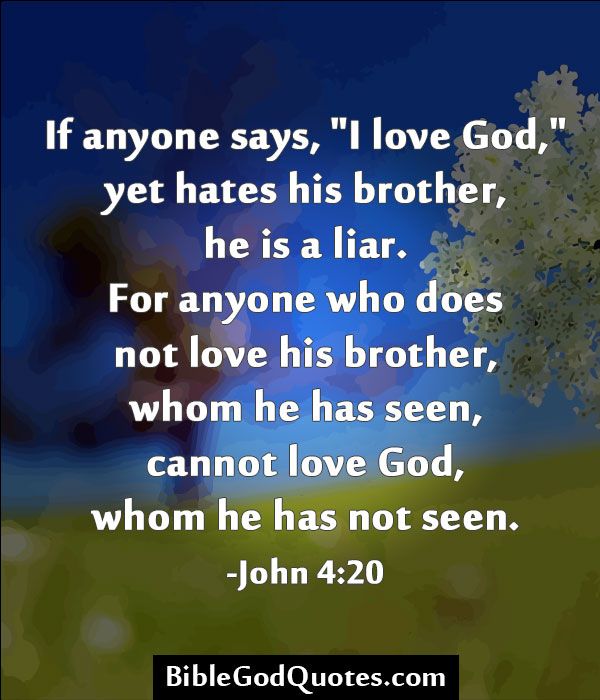Now we must examine our lives in the light of these truths: do we love God’s people and thus demonstrate the reality of our faith?Is our love the basis of hidden attitudes and emotions that cannot be tested, or is it demonstrated by real and practical facts?And discernible evidence, such as words, attitudes, and actions? To help us see where we are standing on this very important topic, the following questions can help.
First, which company excites you the most?Or do you prefer the company of the world and rarely talk about the things of God?When was the last time you were with other believers with the sole intention of being with them and exalting Christ?We must take care of how we answer this question, recognizing that much of the so-called Christian communion has little to do with Christ.
- Second.
- Do you identify publicly with Christ and his people?Or are you ashamed of the scandal of those who confess Jesus as Lord and seek to live in submission to His Word?Do your non-believer colleagues identify you as one of those “Christians”?”Are you either so aligned with the world and in line with your image that such an accusation will rarely.
- Or never.
- Come against you?Do you stand among God’s people as a spectacle in the world.
- Which is considered too sophisticated?accept our religious illusions? [1] Or do you turn away from the Church as a person who moves away from the close relative of whom you are ashamed?Can you identify with Moses.
- Who refused to be called the son of Pharaoh’s daughter.
- Would he rather be mistreated with God’s people than enjoy the traveling pleasures of sin?(Hebrews 11:24?25)?.
Third, while you are aware of the Church’s many moral weaknesses and weaknesses, are you determined to promote its improvement or align you with the devil and the world in the charges against him?[2] We must always remember that the devil is the accuser of our brethren and that those who are outside the church on similar accusations do the work of their father, the devil. [3] On the other hand, the true believer responds to his brother’s failures with a love that hides a multitude of sins and surrenders to his restoration and improvement. [4] He cannot abandon the church or the fallen saint, despite the many times they stray. God’s love forces him to seek them, just as Osas sought Gomer, and to work for his benefit and future glory[5].
Fourth, are you an active and active member of a local and visible congregation of believers?We must remember that the kind of love John writes would only manifest himself in the context of relationships with other believers in the body of Christ. envy of yourself and surrender of your life at the service of the next Christian?Do you have trouble building the church through your various spiritual gifts?In simple terms, what are you doing to build God’s people and promote Christ’s cause among them?
These questions are not reserved only for pastors, but belong to all members of the body of Christ; in fact, one of the proofs that we are members of the body is that we are useful to him. Therefore, one of the pruebas. de not to become is the futility of all good deeds. [6] Love without works, like faith without works, is killed. [7] We would do well to remember that sheep and goats were divided by what they did or did not do for God’s people.
In conclusion, love is not only a good thing among many, but the most excellent, even greater than faith and hope. [8] Therefore, it is not uncommon for John to place love among other tests of conversion. We have to weigh our doctrinal orthodoxy against the standard of Scripture and examine our personal piety and devotional life in light of this. But first of all, we have to show that we love. This virtue must be found in us and manifested in our works, before we dare to assure our hearts that we have known it, as John repeatedly reminds us: “We know that we have already passed from death to life. , because we love our brothers and sisters; Does he who does not love remain in death? (1 John 3:14). “If anyone says: I love God and hate his brother, he is a liar; because he who does not love his brother whom he sees, cannot love God whom he does not see. Now we have this commandment from him: Will he who loves God love his brother also? (1 John 4:20).
[1] 1 Corinthians 4. 9-13. [2] The name?It comes from the Greek word diabolos, which can be translated as “accuser”. This refers to a person subject to false gossip and accusations. [3] John 8. 44; Revelation 12. 10. [4] 1Pierre 4. 8. [5] Osses 3. 1?3. [6] Romans 3. 12. [7] James 2. 17. [8] 1 Corinthians 12:31; 13. 13.
[dt_call_to_action content_size?normal?text_align?left?background?fantasy?line?true?style?2?animation?
This book is an excerpt from Paul Washer’s forthcoming release of Faithful Editor: “The Safety and Warnings of the Gospel” (the third book in the collection?Recovering the gospel?).
[/ dt_call_to_action]

